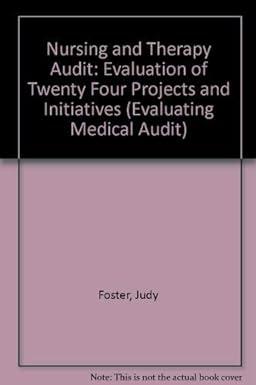Question
Jack and Diane are married to each other. They are calendar-year taxpayers who file a joint income tax return. Diane operates her own landscaping business,
Jack and Diane are married to each other. They are calendar-year taxpayers who file a joint income tax return. Diane operates her own landscaping business, and Jack operates his own air transportation business. During 2016, they engaged in the following three transactions:
A. Diane sold for $50,000 some vacant land that she had used exclusively in her landscaping business. Diane had purchased the land in 2005 for $20,000.
B. Jack sold for $200,000 an airplane that he had used solely in his air transportation business. He had purchased the airplane several years ago for $300,000. You can make the following two assumptions: (i) In the year he purchased the airplane, Jack validly made an election under section 179 of the Code and validly deducted $50,000 of the airplanes purchase price under section 179. (Thus, you need not discuss whether Jack properly took a deduction under section 179.) (ii) From the time he placed the airplane in service to the time of sale in 2016, Jack had validly deducted depreciation with respect to the airplane under sections 167 and 168 of $100,000. (Thus, you need not calculate the amount of depreciation that Jack took with respect to the airplane.)
C. Dianes pickup truck, which she used exclusively in her landscaping business, was destroyed by a tornado. At the time it was destroyed, Dianes adjusted basis in the truck was $20,000 and its fair market value was $15,000. Unfortunately, the truck was not insured. Please discuss only the following two questions:
1. What are the federal income tax consequences for Jack and Diane in 2016 of each of the three transactions set forth above?
2. Taking into account only the three transactions set forth above, to what extent, if any, are Jack and Diane eligible on their joint income tax return for the special tax rates in section 1(h) of the Code? You need not compute the amount of tax due.
Step by Step Solution
There are 3 Steps involved in it
Step: 1

Get Instant Access to Expert-Tailored Solutions
See step-by-step solutions with expert insights and AI powered tools for academic success
Step: 2

Step: 3

Ace Your Homework with AI
Get the answers you need in no time with our AI-driven, step-by-step assistance
Get Started


